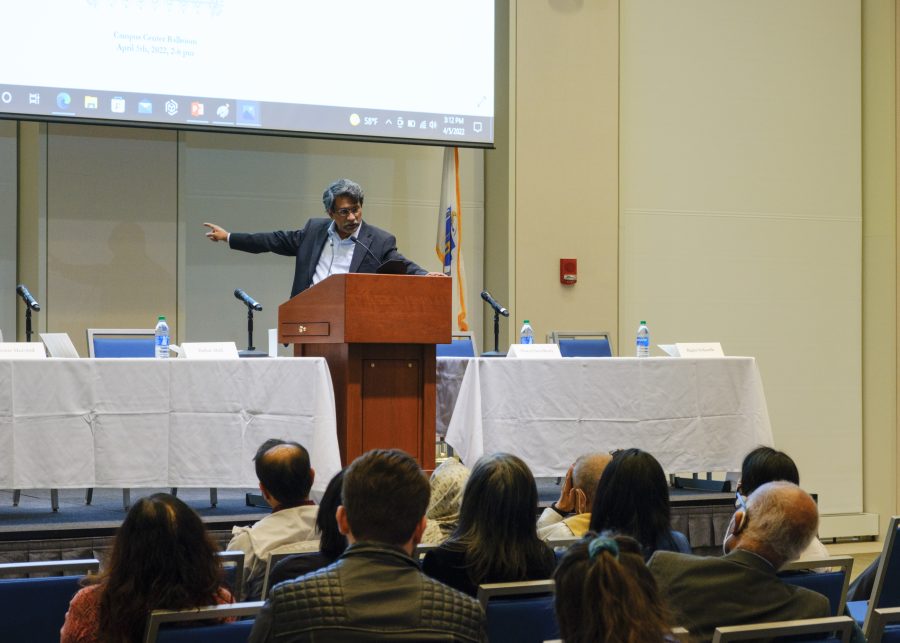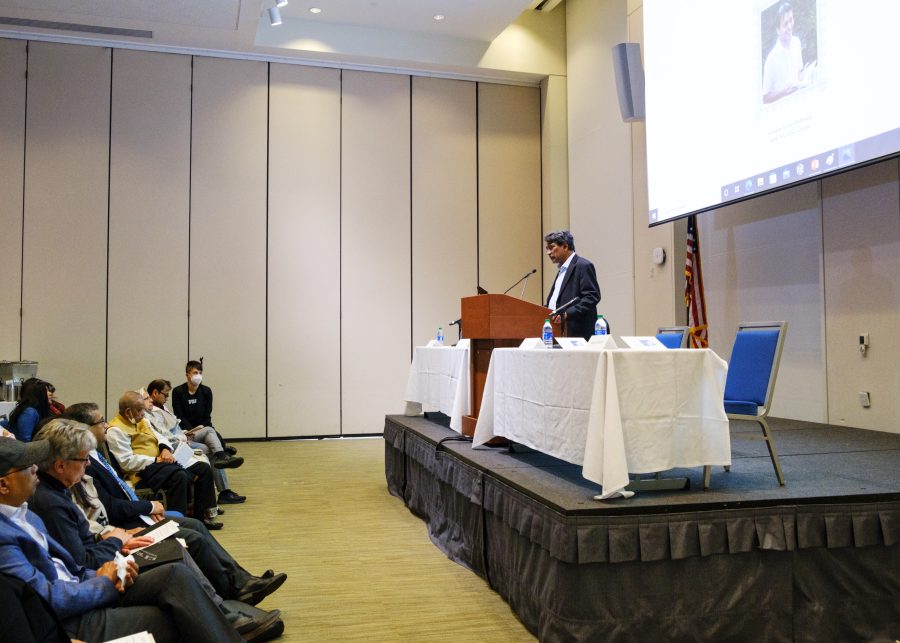The Politics of Truth and Justice in South Asia symposium was held in Ballroom B of the Campus Center on Tuesday afternoon, April 5. Students, faculty and visiting attendees milled around talking and began to take their seats in the deep rows of chairs once a figure appeared at the podium.
The symposium, as it was announced by the host, would be held in honor of Jalal Alamgir. Alamgir, who passed after a swimming accident in 2011, had been an associate professor at UMass Boston and a distinguished colleague and friend of many in attendance.
Chancellor Suárez-Orozco took the stage welcoming the guest speakers to campus, following with an impassioned monologue, stating: “Today, whenever democratic aspirations, whenever the practice of democratic citizenship, is being thwarted—in Syria, in Ukraine, in the United States—it is because truth is being subverted and justice is being denied.”
A fourth year student in attendance, Michael, told The Mass Media that he values events such as this on campus because they “give everyone an opportunity to hear different sides of stories and different opinions.”
After several more speaker introductions, Illinois State University professor and keynote speaker Ali Riaz took the podium. He remembered academic and political disagreements with professor Alamgir but recalled, fondly, how the pair would meet for coffee and easily put aside their differences. Then, addressing the heart of his presentation, professor Riaz began explaining the weighty importance of a single concept: apology.
In 1971, Pakistani forces launched a military operation in what is now Bangladesh, killing an estimated 500,000 to three million people. To this day, Riaz noted, the Pakistani government has not offered anything close to an official apology or recognition of the atrocities committed 51 years ago. He explained the collective trauma that many people in Bangladesh still feel today.
The functions of an apology, Riaz stated, are threefold: One, the actions, events or policies in question were morally wrong; two, the recipient was wronged by the actions, events, policies in question; and three, the apologizer takes responsibility for the actions, events or policies in question.
As the first presentation of the event concluded, professor Riaz took questions from those in attendance, carefully considering each before answering.
The Mass Media also spoke with Peter, a junior studying International Relations. Peter shared: “I came here for two reasons. First, for the extra credit of course, and second, to be more open minded and less ignorant, because once we learn about other countries and once we know about what’s going on in other places, it kind of opens your mind to other stories.”
Senior student and Political Science major Alden explained why he was attending the event: “Because I know many of the Political Science professors, and I’m interested to see what they’re putting together. I value events like this on campus mainly because I believe it’s important for the general population to be educated not only on politics, but on the international world. So, events like this allow people to come in, perhaps know nothing about the politics of Asia or [about] Asia in general, and get to be able to learn about it.”
Maya, a senior student attending the event, added: “I’m here primarily because I am supposed to be here for a class—a couple classes actually—but it’s also just a really interesting topic and I probably would’ve stopped by even if I hadn’t been instructed to.” When asked if she thought events like this were important on campus, Maya affirmed, noting: “I think these types of things are really important on campus, especially as our campus becomes more of a place where students live and go to school and are just hanging out more.”
Professor Riaz was joined in presentation by panelists Navine Murshid with Bangladesh in Alamgir’s India’s Open Economic Policy; Ruhul Abid with Truth in the Time of Corona: COVID-19 and Collateral Damage; Elora Chowdhury with Decolonizing Bangladesh Studies: The Romance of the New Woman; and Rajini Srikanth with In the Quest for Justice: Jalal Alamgir’s Embrace of Fiction and Poetry.


